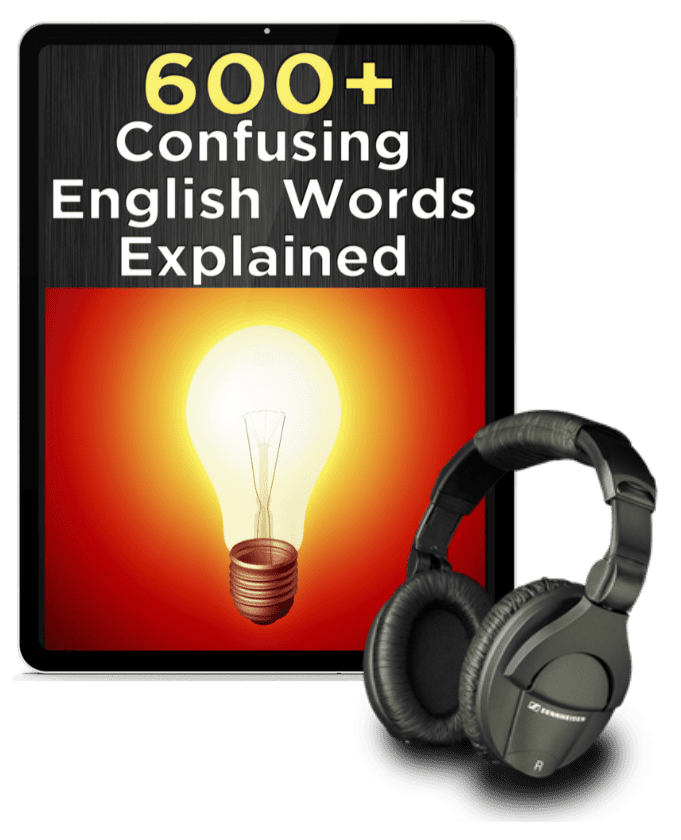
Today we have a great question from a student who asked about the difference between the words lifetime, lifelong, and lifespan. These words all seem to refer to the time period of someone’s life, but we use them in different ways in English.
You might have a lot of questions like this one, questions about the difference between English words that seem very similar or even identical – and you’ll find a lot of answers inside my e-book, 600+ Confusing English Words Explained. The lessons have easy-to-understand explanations and examples, so that the confusing words become clear to you.
Lifetime
Let’s start with lifetime. This word is often used as a noun referring to the time period of a person’s life.
You could say, “The author published 20 books during his lifetime,” the period that he was alive. Or if you buy a really high-quality product, you could say “it’s made to last a lifetime” meaning you expect to use it for the rest of your life.
Sometimes lifetime is also used as an adjective, so you might have “a lifetime membership” to a club (meaning you can stay a member for your whole life), or a product might have “a lifetime warranty,” meaning that the company guarantees the product for your whole life.
Finally, the word lifetime can also be used to mean “a very long time,” not necessarily a specific person’s life. If you haven’t seen a friend in 15 years, you could say “it seems like a lifetime since we last saw each other” – meaning a very long time. Another expression is saying that something “was a lifetime ago” – such a long time ago that your life was very different at the time.

Lifelong
Lifelong is an adjective and it’s a more “emotional” word because we use it to describe relationships and interests that have been important to us for our entire lives.
Maybe you have a lifelong friend who you’ve known since you were very young, or you’ve been a lifelong fan of your favorite sports team. You could have a lifelong hobby, a lifelong interest, a lifelong passion/dream.
When a person, cause, or activity is so important to you, you might have a lifelong commitment to it.

Lifespan
The word lifespan is more typically used to talk about animals or objects, the amount of time they’re expected to live or to be useful and functional.
Insects have a short lifespan, they live only a few days or weeks. If your car is starting to get old, you might upgrade some of its parts in order to extend its lifespan – make it last longer, function longer. A company might claim its products have an average lifespan of 30 years, so they will work for about 30 years before breaking or needing to be replaced.

Let’s review:
- lifetime refers to the period of a person’s life, or a very long time
- lifelong describes relationships and interests that have been important to us our whole lives
- lifespan is the amount of time an animal or object will live or function
When you join a course at Espresso English, you get lifetime access – you can keep your access for your whole life! There’s no time limit, so you can study anytime now or in the future.
If you want to learn English even faster this year, make sure to check out our courses for an effective way to improve your skills – from speaking to listening, grammar to vocabulary, collocations, phrasal verbs, idioms, and so much more. Thanks for watching, and I’ll see you in the next video!

